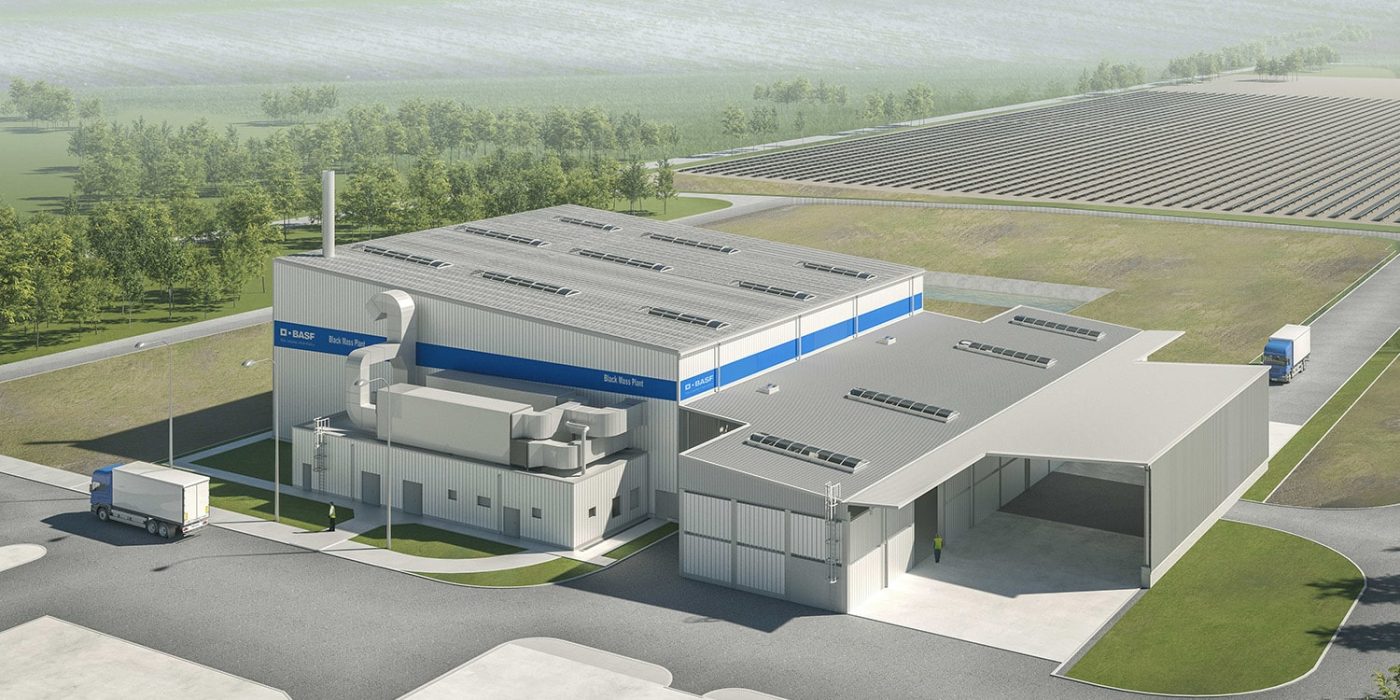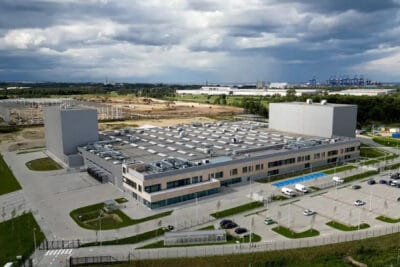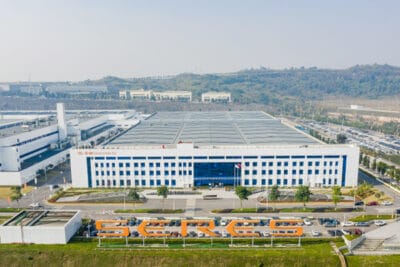BASF inaugurates first cathode materials factory in Germany
German chemical company BASF has inaugurated its cathode materials factory in Brandenburg, Germany. The plant, already sold out for the next few years, aims to produce materials tailored to the specific requirements of battery cells and automakers in Europe.
Located in Schwarzheide, BASF plans to operate a cathode materials factory and a battery recycling plant side by side. While both projects have been in the making for some time, in today’s announcement, BASF underscored it was the first company to establish a “co-located battery materials and recycling centre and close the loop in the European battery value chain – from the collection of used batteries and the recovery of mineral raw materials to their use in the production of new battery materials”. The battery recycling plant is currently under construction. It is expected to be operational by 2024. The company combined the inauguration of the cathode materials factory with a “reveal ceremony” for the upcoming recycling facility, where the so-called “black mass” will be produced.
The Schwarzheide plant is expected to manufacture battery materials for over 400,000 electric vehicles annually, reportedly using precursors from BASF’s plant in Harjavalta, Finland, and employing “world-leading process technology”. According to BASF, the proprietary production technology significantly reduces the CO2 footprint of cathode materials through minimized energy consumption and a high proportion of renewable energy sources during production. Further details regarding the specific technology were not disclosed in the announcement.
The project received €175 million in funding from the German federal government and the state of Brandenburg, with the state contributing 30% and the Ministry of Economics providing the remaining 70%. The European Commission approved the support in December 2019 under the Important Project of Common European Interest (IPCEI) framework.
BASF factory may be the first of more plants to come
BASF describes the new facility as the first production site for high-performance cathode materials in Germany and the first fully automated large-scale production plant for cathode materials in Europe. Notably, the company mentions that the facility is already sold out for the next few years. BASF also reveals that it is preparing for additional investments in cathode materials in Europe and is engaged in advanced negotiations with customers, although specific details were not provided.
“Despite all challenges, we are currently facing in Europe, today is a reason for all of us to be optimistic,” said Dr Martin Brudermüller, Chairman of the Board of Executive Directors of BASF. He added that both plants underlined that BASF believes in the future of the chemical industry in Europe and Germany. “With our two investments, we significantly contribute to reducing the CO2 footprint of batteries and close the loop for sustainable mobility.”
European Commission Vice President Maroš Šefčovič added the EU battery market was “rapidly growing”, with demand for batteries expected to “increase drastically” in the coming years. “In this context, the European Commission is committed to keep building a solid battery ecosystem in Europe,” he said. “This is why we have created the European Battery Alliance, which has helped to generate more than €180 billion in private investments so far. The BASF plant benefited from this work.”
Moreover, BASF highlighted efforts already underway in Asia and North America, where the company aims to offer recycled cathode materials as a circular solution. With the recent investments in Schwarzheide, BASF plans to extend this approach to the European market. The company explains that the new facility will mechanically process used batteries and waste from battery production into black mass. This black mass contains essential metals such as lithium, nickel, cobalt, and manganese, which produce cathodes. In the second step, these metals can be chemically recovered to create new cathode materials.
In addition to the cathode materials factory, BASF has already established a recycling pilot plant in Schwarzheide, for which details were released in June 2021. In February of this year, the chemical company announced a long-term collaboration with Israel’S Tenova Advanced Technologies (TAT) to optimize the hydrometallurgical recycling process at this pilot plant.





0 Comments